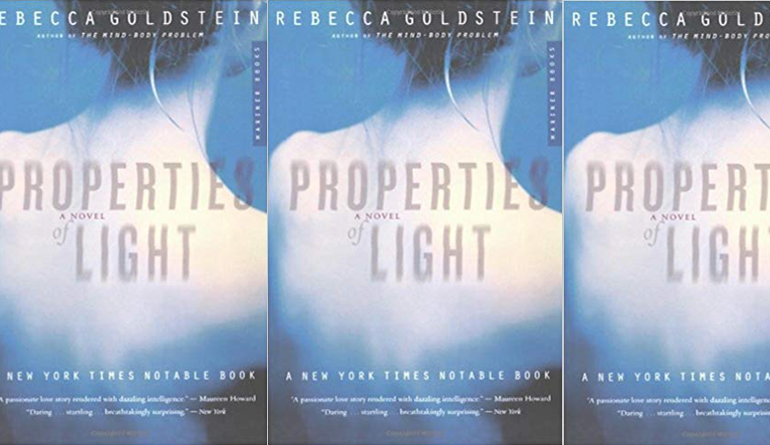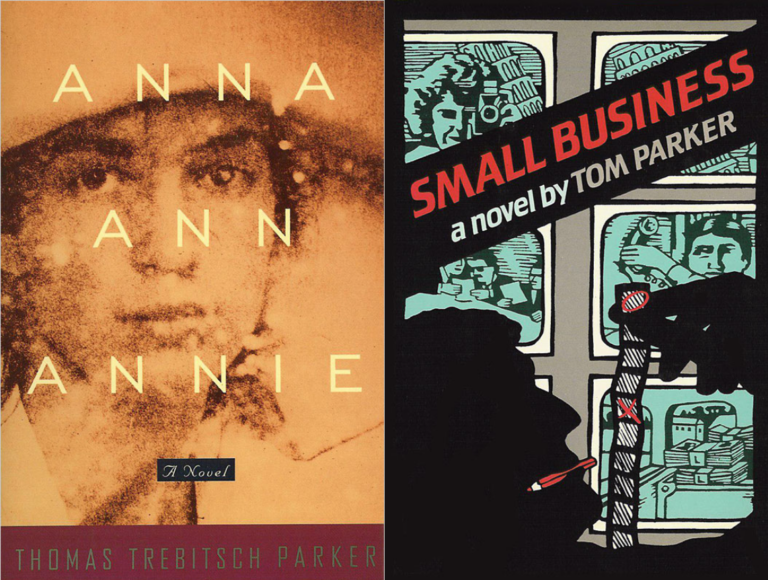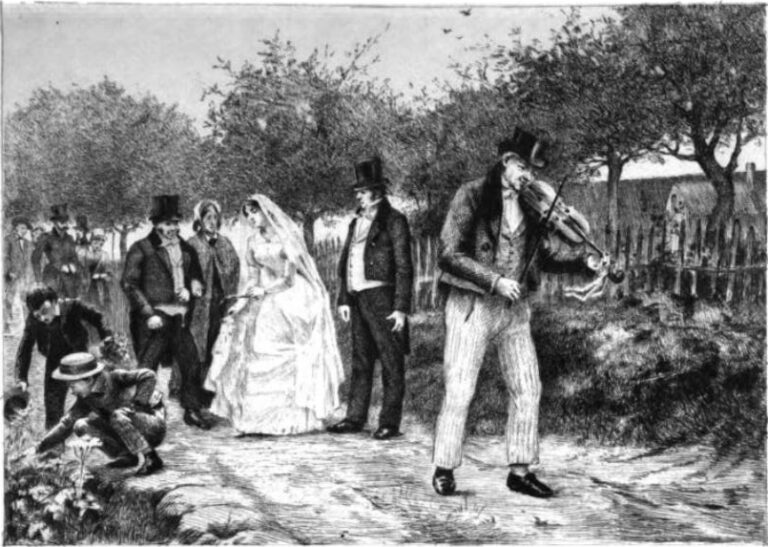The Physics of Fiction, the Music of Philosophy: an Interview with Rebecca Newberger Goldstein

Rebecca Newberger Goldstein’s astonishments as a philosopher and as a novelist are too numerous to list here. Already launched in her career as a philosophy professor, she reached a moment in her own life when philosophical inquiry no longer felt like a broad enough arena in which to explore the full range of human experience. In response, she began writing fiction—asking, from the perspective of her philosophical training, what seemed “the most ‘unprofessional’ sorts of questions”.
These unprofessional questions have propelled her through six novels and a book of short stories, even as she’s continued producing philosophical texts. Upon granting her a fellowship, the MacArthur Foundation stated that her works “emerge as brilliant arguments for the belief that fiction in our time may be the best vehicle for involving readers in questions of morality and existence.”
Her fiction, though, feels anything but theoretical.
Rebecca Newberger Goldstein writes books about people, not about ideas…it’s just that her people happen to be the sort who wrestle—passionately, sometimes absurdly–with ideas. Her books are sexy, funny, scary…and they tell wonderfully compelling stories. She has expressed her wish to “insert ‘real life’ intimately into the intellectual struggle”. One could as easily say, though, that Rebecca Newberger Goldstein inserts the intellectual struggle intimately into real life—or rather, that she simply shines a light on the fact that the two co-exist in every heartbeat.
RK: Properties of Light: a Novel of Love, Betrayal, and Quantum Physics, is one of my all-time favorite books. It’s haunting, intellectually fascinating, unexpectedly funny. It’s a romance, a Gothic novel…and it’s a mystery whose key is a concept from physics. When you began writing, which presented itself first: the physics or the human story?
RNG: First off, thank you so much for interviewing me and also for starting off with that novel. It was the first novel I published after I got the MacArthur fellowship, and the confidence that award gave me allowed me to undertake a book I thought would be difficult for publishers—not to speak of reviewers—to wrap their heads around. I wasn’t wrong about that.
I’d had a triadic relationship in mind: a father, a daughter, and a young man who is both the father’s disciple and the daughter’s lover. All three would be in the same profession, isolated from everyone else in their field, but sharing a profound intuitive understanding among themselves. At first, I had made the three of them poets. The seminal ideas, revolutionary, come from the father, from work he had done long ago which went completely unrecognized. The father, embittered, has closed himself up in the castle of his despair with his daughter. The disciple, who understands the father’s ideas and has the tools to carry them forward, upsets the balance. There is deep love and deep betrayals on all sides.
These relationships were in place, but the book stalled. I’d written one scene in which the disciple, or his spirit, is lurking outside a window, in the dark, staring in at the daughter who is working by lamplight. She feels herself being watched and looks up to see her window covered with the moths who had been drawn by the properties of light. That phrase, “properties of light” jarred me into the recognition that the three must be physicists, not poets. I’d had a longstanding interest in the philosophical questions raised by quantum mechanics, a theory that does damage to our intuitive ideas about reality, about the very materiality of matter. Once I made this discovery, that all three of them were physicists, the book wrote itself.
This was an example of my only eventually discovering that a literary idea I was pursuing jibed with a longstanding philosophical obsession. I think it’s because I think about philosophy and science using certain designated areas of my brain, and it sometimes takes me a while to realize that a literary framework I’m working on is really a vehicle for thinking out these other ideas. When this happens I always feel quite shocked, even though it happens to me over and over again. Each time I feel as if I’m saying to different parts of my brain, “Let me introduce you to one another. I think you might be able to collaborate.”
RK: I was fascinated by the idea that Properties of Light grew out of a bedtime story you told to one of your daughters. Mothering as a creative endeavor can seem a taboo subject in serious intellectual and artistic circles, and ‘outing’ oneself as a mother can feel risky—as though we’ll no longer be taken as seriously as thinkers if we acknowledge this element of the life of the body and the life of the heart. Is there anything you’d like to say about the balance you’ve struck between your roles?
RNG: I would never have become a novelist had I not become a mother. It was precisely those conflicting forces that you allude to in your question that made me turn to fiction to try to think things out. Having my first child unleashed such a torrent of emotions. I was no longer detached from life. I’d always been a philosopher, not only by training but by temperament, by which I mean looking at everything from a certain analytic distance, always able to remove myself from the situation and think about it in the most abstract of terms. That sort of radical objectivity wasn’t possible for me anymore, at least not when it came to my child. That sort of radical objectivity didn’t even feel morally right to me anymore, at least not when it came to my child. Abstraction felt in contradiction to my obligations as a mother. My philosophical training wasn’t irrelevant to what I was thinking, not at all, but I found I could no longer write about philosophy as I’d been trained to write. It seemed false to the urgency that I felt. I went searching for a new way of writing. It was in the middle of that urgency and confusion that I wrote my first novel, The Mind-Body Problem.
Perhaps it’s no accident that, motherhood having turned me into a novelist, I have two literary daughters, both of whom majored in philosophy in college. Yael Goldstein Love is a novelist and Danielle Blau is a poet.
RK: Given anti-intellectual trends in American culture and the watermark of philosophical inquiry in your work, I wonder whether you’ve experienced any difference in reactions to your work between American and, say, European readers?
RNG: My fiction has received little to no attention in Europe. Few of my novels have been translated. None has been translated into French, which is the country that takes philosophical fiction the most seriously. So as anti-intellectual as America may be, I can only say with heartfelt gratitude that at least I’m published here.
RK: In Betraying Spinoza: the Renegade Jew Who Gave Us Modernity, you look at Spinoza’s life with both rigor and sympathy…and when you near the end of his story, the book slides into a novelistic voice. You write Spinoza’s life in the voice of a philosopher, but you write his death as a novelist. I never expected to be in tears at the end of a biography of Spinoza. The tenderness of the book’s ending seems the perfect fruition of your observations about his life and the communal pressures amid which he forged his wholly unique voice. I’ve seen very few writers so successfully pull off this shift from biography into fiction (right now the only other one coming to mind is Julia Blackburn’s Daisy Bates in the Desert: A Woman’s Life Among the Aborigines). Was this shift a choice you debated? I’m curious as to how this move was received by the various communities who would consider themselves the book’s natural readership: the philosophical / academic community, the artistic community, the Jewish community.
RNG: How happy it makes me to know that you cried! I cried, too, as I finished that book. I had taught Spinoza’s Ethics for decades and thought I understood his system intimately, but I finished the book with a new understanding of him, and it was very emotional for me, my love for this thinker merging with the great betrayal of drawing so near to his person, allowing myself to try to imagine what it might have felt like to be him, and yet knowing that my philosophical understanding of him had deepened in the process of betraying him by fictionalizing his life. What I was doing seemed to me so subversive, most especially in a book about Spinoza, that great apostle of the impersonal point of view.
I was surprised that no reviewer ever mentioned this slide from non-fiction into fiction and what it might mean in the context of a book about Spinoza. You, Rachel, are the first person who is drawing attention to this fact! I’d thought of this slide as making a major point, both about Spinoza and about the philosophical tradition that he represented. Nobody picked up on this, or even seemed to notice that it had been done. This was particularly surprising to me since the person who reviewed the book in the New York Times Book Review was Harold Bloom, who is reputed to be a good reader. He didn’t seem to have a clue of what the book was about on even the most superficial level, never mind the stylistic risks that are taken, the mixing up of various genres, and what this might mean in a philosophical book.
Since I thought of the book as subversive, I was surprised by how well it was received within the philosophical community. Hilary Putnam, one of the greatest of living philosophers, wrote a long appreciative review of the book. The philosophers, too, made no mention of the slide into fiction at the end and what this slide might be indicating, but at least the interpretation of Spinoza put forth in the book was taken seriously.
RK: Do you feel a greater kinship with fiction writers or with philosophers?
RNG: I enjoy the way philosophers’ minds work: the precision, the subtlety, the rigor. It is, for me, much more pleasurable to be speaking with philosophers than any other group of people. Philosophical considerations are almost like a certain range of sound that only some can hear. Hearing a good philosopher speak is, for me, like hearing music.
I felt myself to be exiled from the philosophical community after my first novel was published. I was very young when The Mind-Body Problem was published, and I wasn’t prepared for the attention it got and the controversy it provoked. I didn’t understand that some in the philosophical community would take my publishing a novel as indicating that I wasn’t a real philosopher. My specialty back then had been philosophy of science, and there were few women in that area (still true), and so being taken seriously was, in any case, an uphill climb. And then I go and publish a novel! Even those who had taken my philosophical work seriously before now treated me as if the part of my brain that does philosophy must have turned to mush in the process of writing fiction. I was too young to realize the absurdity of this. I withdrew from the philosophical community, never again going to conferences or writing the sorts of papers that were expected from me. It was a source of great pain, this isolation from the sorts of people I most enjoy talking with.
In recent years, after the publication of my two non-fiction books, Incompleteness: The Proof and Paradox of Kurt Gödel and Betraying Spinoza, I’ve been partially rehabilitated into the philosophical world. And the last novel 36 Arguments for the Existence of God: A Work of Fiction has been widely discussed, and even reviewed, by philosophers. There’s a marvelous radio show, called Philosophy Talk, that comes out of Stanford, with two first-rate philosophers, John Perry and Ken Taylor, doing the interviewing. After 36 Arguments came out, they invited me on, and they devoted the show to the ways in which fiction can illuminate philosophy, and they didn’t demean me in the least and didn’t demean fiction. 36 Arguments has an appendix in which philosophical work is done, and they were appreciative of that fact, and also of the way in which the appendix and the novel were in tension with each other. (In a certain sense, what I’m doing there is the same as what I do by sliding into fiction in Betraying Spinoza, although I’m moving in the opposite direction.) John Perry joked that 36 Arguments was a real bargain for the price, because you get two works: a novel and a work of philosophy. I felt such surprise during this interview, which took place some twenty-odd years after I’d published the novel that got me philosophically banished. I came home after the taping and said to my husband, “This would be a good moment to die, because I’ll never again be so happy.”


